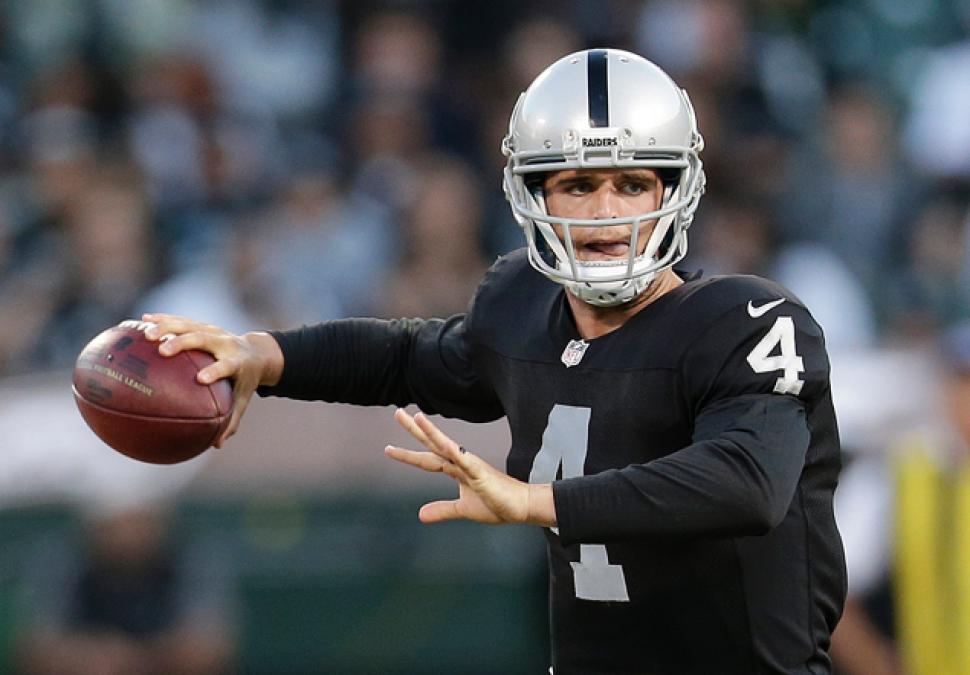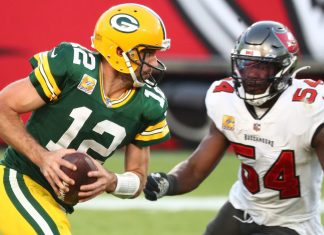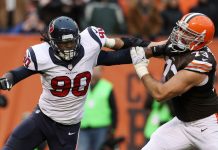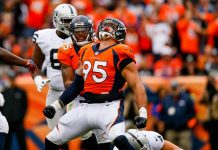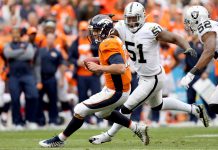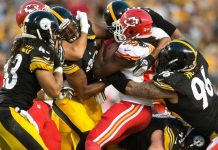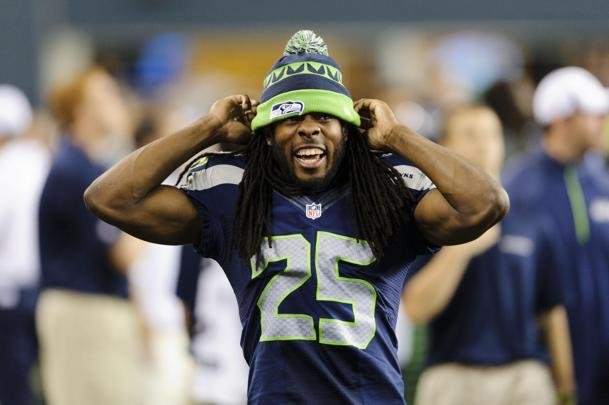ALAMEDA, Calif. (AP) The challenges facing a rookie quarterback in the NFL can be a bit overwhelming.
After spending months following the college season preparing for the draft, the player joins a new team already in the middle of its offseason program. There’s a new offense, a new lifestyle, new teammates and coaches.
By the time season starts, the quarterback is expected to have the playbook mastered, know the habits of the receivers, and prepare to face a different defense each week with more complex schemes than he ever saw in college.
On top of that comes the responsibility of holding the hopes of a franchise that has usually been struggling, or else it wouldn’t need a rookie quarterback to play in the first place.
It’s no wonder so few quarterbacks succeed right from the start.
”I don’t want to say it’s like Groundhog Day, but you’re just so caught up in it, you don’t really have a chance to digest anything. You’re just going,” Oakland second-year quarterback Derek Carr said. ”The grind doesn’t stop from training camp until the end of the season.”
That’s why Carr took time this offseason to watch every game, trying to learn why certain things worked and others didn’t, and to figure out how to correct those rookie mistakes going forward.
”Once I finally got to sit back and watch some plays, watch some film of things that I had done during the season, I could say, `Oh man, I don’t even recognize that guy. I don’t even know who that is,”’ Carr said. ”That’s a good thing. You want to be able to say, `I don’t recognize that.’ But when the good things happen, you want to be able to say, `Well, I can go out and do that again.”’
The Raiders are banking on that offseason of learning to lead to significant improvement from Carr, who showed positives with 21 touchdown passes and just 12 interceptions, but also averaged a league-low 5.5 yards per attempt.
Carr was one of three quarterbacks, along with Jacksonville’s Blake Bortles and Minnesota’s Teddy Bridgewater, who got substantial playing time as rookies last season and are being counted on to take a big step forward in 2015.
Bridgewater said he has a much deeper understanding of coordinator Norv Turner’s offense in Year 2 that will prove beneficial this season.
”Having a year under my belt, I can see why he’s calling certain plays and where he wants to go with the football,” Bridgewater said. ”Having an understanding of the coordinator, I think I’m that far ahead this year.”
Without a draft to prepare for, Bridgewater was able to put on more weight this offseason that will help him absorb hits he will take and add strength to his arm.
Bortles also used the offseason to his benefit. He worked with quarterback guru Tom House to improve his footwork after completing 59 percent of his passes for 2,908 yards with 11 touchdowns and 17 interceptions as a rookie.
He also has a new offense under coordinator Greg Olson, who worked with Carr in Oakland last season. Bortles said the game has slowed down and he is better equipped to read defenses than he was as a rookie.
”Not that it comes easy, but you’ve seen more,” he said. ”You’re seeing things before rather than last year you’re seeing stuff for the first time a little bit. And I’ll still see things for the first time this year, but you have a little bit more of a memory bank.”
All three second-year quarterbacks will also benefit from an upgrade in talent. Bridgewater gets star running back Adrian Peterson back. The Jaguars beefed up the offensive line and added Pro Bowl tight end Julius Thomas – although Thomas is sidelined with a broken finger. The Raiders giving Carr a new pair of starting receivers in first-round pick Amari Cooper and Michael Crabtree.
They also have the confidence of having earned the No. 1 spot before the offseason even began.
”He’s not focused on trying to win the starting job like last year,” Raiders left tackle Donald Penn said of Carr. ”He’s just focused on making this offense as good as it can be. That’s a big lift off his shoulders.”
Predictably, playing time as a rookie has traditionally led to improvement as a second-year player. Players who started at least eight games at quarterback as rookies since 2000 saw increases in completion percentage, touchdown percentage and yards per attempt the next year, while seeing the rate of interceptions fall.
The biggest improvement came in decision making, with the touchdown-to-interception ratio for the group improving 40 percent over the rookie year.
”You know what to expect,” said Christian Ponder, who took the Vikings to the playoffs in his second year, 2012. ”Your rookie year is so crazy going from college to the combine to the draft to OTAs and right into the season. The second year the game slows down and you really understand what you’re doing.”
—
AP Pro Football Writer Dave Campbell and Sports Writer Mark Long contributed to this report.
—
Online:
AP NFL website: www.pro32.ap.org and www.twitter.com/AP-NFL
25% Bonus via Western Union


